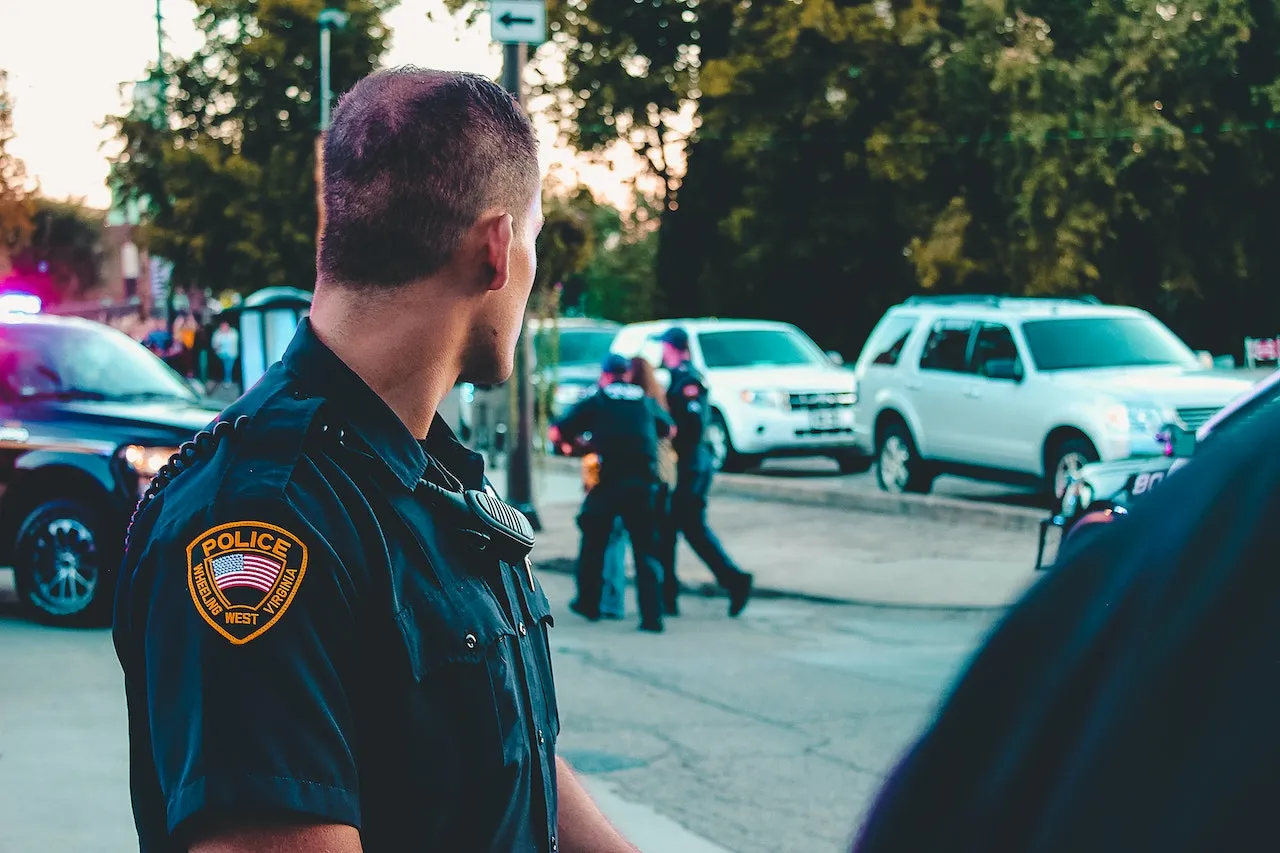When Can Police Ask For Id In Florida?
Being asked to show your ID by a police officer can be an unnerving and uncertain experience. As a citizen, you may wonder if you are required to provide identification in every police encounter. What are your rights when it comes to showing ID to the police in Florida?
If you’re short on time, here’s a quick answer: In Florida, police need reasonable suspicion of criminal activity to demand your ID. However, you must identify yourself if driving a vehicle or carrying a concealed weapon.
In this comprehensive guide, we will cover when Florida police can and cannot legally ask you for identification. We’ll outline the key laws and statutes that give police authority to request your ID, as well as your rights in refusing. With the right information, you can have a better understanding of what to expect during police encounters.
Florida Stop and Identify Statute
When it comes to police interactions with individuals, it is important to understand the laws that govern these encounters. In Florida, one such law is the Stop and Identify Statute, which outlines when police can ask for identification.
What the Statute Covers
The Florida Stop and Identify Statute, also known as Section 901.151 of the Florida Statutes, empowers law enforcement officers to request identification from individuals under certain circumstances. According to the statute, a person must provide their name, address, and date of birth if a law enforcement officer has reasonable suspicion that they have committed, are committing, or are about to commit a crime.
This statute is important as it gives police officers the authority to request identification when they have a legitimate reason to believe that someone may be involved in criminal activity. It is crucial to note that the statute does not give police officers the authority to randomly stop and ask for identification without any reasonable suspicion.
When Police Have Reasonable Suspicion
Reasonable suspicion is a key requirement for a police officer to request identification under the Florida Stop and Identify Statute. But what exactly constitutes reasonable suspicion?
Reasonable suspicion means that the police officer must have specific and articulable facts that would lead a reasonable person to believe that a crime has been, is being, or is about to be committed.
This could include observing suspicious behavior, receiving a credible tip, or witnessing a violation of the law.
It is important to understand that reasonable suspicion is different from probable cause. While reasonable suspicion is a lower standard that allows police officers to briefly detain individuals and request identification, probable cause requires a higher level of evidence to make an arrest.
For more information on the Florida Stop and Identify Statute, you can visit the official website of the Florida Legislature at www.leg.state.fl.us.
Traffic Stops and DUI Checkpoints
When it comes to traffic stops and DUI checkpoints in Florida, it’s important to understand the rights and obligations of both drivers and law enforcement officers. Knowing what to expect can help ensure a smooth encounter and prevent unnecessary complications.
Two key aspects to be aware of are providing license, registration, and insurance, and sobriety testing requirements.
Providing License, Registration, and Insurance
During a traffic stop or DUI checkpoint, it is standard procedure for law enforcement officers to request the driver’s license, vehicle registration, and proof of insurance. This information helps officers verify that the driver is legally allowed to operate the vehicle and that the vehicle is properly registered and insured.
According to the Florida Department of Highway Safety and Motor Vehicles (DHSMV), it is mandatory for drivers to carry their driver’s license, vehicle registration, and proof of insurance whenever they are operating a motor vehicle. Failure to provide these documents upon request can result in penalties, including fines and potential license suspension.
It is important to keep these documents easily accessible in your vehicle to avoid any issues during a traffic stop.
If you are unable to locate any of these documents at the time of the traffic stop, it is best to inform the officer politely and ask for guidance on how to proceed. Remember, remaining calm and cooperative can help ensure a positive outcome.
Sobriety Testing Requirements
When it comes to DUI checkpoints specifically, law enforcement officers may also request drivers to submit to sobriety testing to determine if they are driving under the influence of alcohol or drugs. These tests are conducted to ensure the safety of the driver, passengers, and other road users.
In Florida, drivers are legally obligated to submit to sobriety testing if requested by a law enforcement officer. This can include field sobriety tests such as the walk-and-turn test or the one-leg stand test, as well as breathalyzer tests to measure blood alcohol content (BAC).
It’s worth noting that drivers do have the right to refuse a breathalyzer test, but doing so can result in immediate penalties, including a driver’s license suspension. Refusal to submit to other types of sobriety tests can also be considered as evidence of impairment and may lead to further legal consequences.
If you have concerns about the legitimacy or conduct of a sobriety test, it is best to consult with a legal professional who specializes in DUI cases. They can provide guidance on your rights and help you navigate the legal process.
For more information on traffic laws, driver’s license requirements, and DUI regulations in Florida, you can visit the official website of the Florida Department of Highway Safety and Motor Vehicles (DHSMV).
If You’re Legally Carrying a Firearm
In Florida, if you are legally carrying a firearm, there are certain rules and regulations you should be aware of when interacting with law enforcement officers. These rules are in place to ensure the safety of both the individual carrying the firearm and the police officers involved.
Duty to Inform Officers
One important aspect to note is the duty to inform officers when you are legally carrying a firearm. According to Florida law, you are required to inform an officer that you are carrying a concealed weapon if you are approached or stopped by the police.
This duty to inform applies whether you are a driver or a passenger in a vehicle, and it is crucial to comply with this requirement to avoid any misunderstandings or potential conflicts.
Remember, the purpose of this duty to inform is to maintain transparency and ensure the safety of all parties involved. By informing the officer upfront about the presence of a firearm, it allows them to take appropriate precautions and ensure a peaceful and safe encounter.
Presenting Valid Permits
In addition to informing officers about the presence of a firearm, it is also essential to present your valid permits when requested by law enforcement. This includes both your concealed carry permit and any other required permits for carrying a firearm in specific situations or locations.
When asked to present your permits, it is crucial to do so in a calm and respectful manner. Keep in mind that police officers are carrying out their duties and ensuring public safety. By cooperating and providing the necessary documentation, you can help facilitate a smoother interaction and ensure that everything is handled appropriately.
If you are legally carrying a firearm, it is always a good idea to familiarize yourself with the specific laws and regulations in your state. For more detailed information about firearm laws in Florida, you can visit the official website of the Florida Department of Agriculture and Consumer Services at www.fdacs.gov.
When Police Lack Reasonable Suspicion
Under Florida law, police officers are generally allowed to ask for identification from individuals when they have reasonable suspicion that a crime has been committed, is being committed, or is about to be committed.
However, there are certain situations where police lack reasonable suspicion and asking for identification may not be justified.
Asking “Am I Free to Go?”
When interacting with the police, individuals have the right to ask if they are free to leave. If the police do not have reasonable suspicion, they cannot detain or require identification from someone who is not under arrest.
If you are approached by an officer and you are unsure if you are being detained, it is within your rights to politely ask, “Am I free to go?” This simple question can help clarify your situation and determine if the officer has reasonable suspicion to ask for your identification.
It is important to note that while you have the right to ask if you are free to go, it is equally important to remain respectful and cooperative with law enforcement officers. Being confrontational or uncooperative can escalate the situation and may lead to unnecessary complications.
Potential For False Arrest
In some cases, police officers may ask for identification without reasonable suspicion, leading to potential false arrests. False arrests occur when individuals are wrongfully detained or taken into custody without legal justification.
These situations can be distressing and can have serious consequences for the individuals involved.
If you believe that you have been subjected to a false arrest, it is crucial to seek legal guidance immediately. An experienced attorney can help determine whether there was a lack of reasonable suspicion and can assist in protecting your rights and seeking justice.
It is important to stay informed about your rights when interacting with law enforcement officers. Understanding when police can ask for identification in Florida can help individuals navigate encounters with the police and protect their rights.
For more information on this topic, you can visit the official website of the American Civil Liberties Union (ACLU) at www.aclu.org.
Refusing to Show ID When Not Required
In Florida, it is important to understand when and under what circumstances the police can ask for your identification. While it is generally required to provide identification when you are operating a motor vehicle, there are situations where you have the right to refuse to show your ID.
It is crucial to know your rights and how to handle these situations calmly and respectfully.
Remaining Calm and Respectful
If you find yourself in a situation where the police ask for your ID, but you believe it is not required, it is essential to remain calm and respectful. Getting confrontational or aggressive may escalate the situation and lead to unnecessary complications.
Remember, police officers are just doing their job, and treating them with respect can go a long way in diffusing tension.
One effective strategy is to politely ask the officer why they are requesting your identification. By respectfully seeking clarification, you can better understand their reasoning and assess whether it is necessary to comply.
It is important to note that even if you choose to refuse to show your ID, it is crucial to remain calm and compliant with any other lawful orders given by the officer.
Cooperating Within Your Rights
While you have the right to refuse to show your ID in certain situations, it is essential to cooperate within the boundaries of the law. For example, if the police have reasonable suspicion that you have committed a crime, they may have the authority to ask for your identification.
In such cases, it is generally advisable to comply with their request.
However, if you firmly believe that the police do not have the legal right to ask for your ID, you can calmly and respectfully assert your rights. It is important to clearly communicate that you are exercising your constitutional rights and that you do not consent to the search or seizure of your identification.
It is worth mentioning that laws and regulations can vary, and it is always a good idea to consult with a legal professional to fully understand your rights in your specific jurisdiction.
For more information on your rights when interacting with law enforcement in Florida, you can visit the official website of the American Civil Liberties Union (ACLU) at www.aclu.org. They provide comprehensive resources and guidance on various legal matters related to civil liberties.
Conclusion
Understanding when police can demand ID in Florida can better prepare you for law enforcement encounters. While you must identify yourself in certain situations, police need reasonable suspicion in others. Knowing your rights, remaining calm, and following the law can help avoid unnecessary issues when asked for ID.








